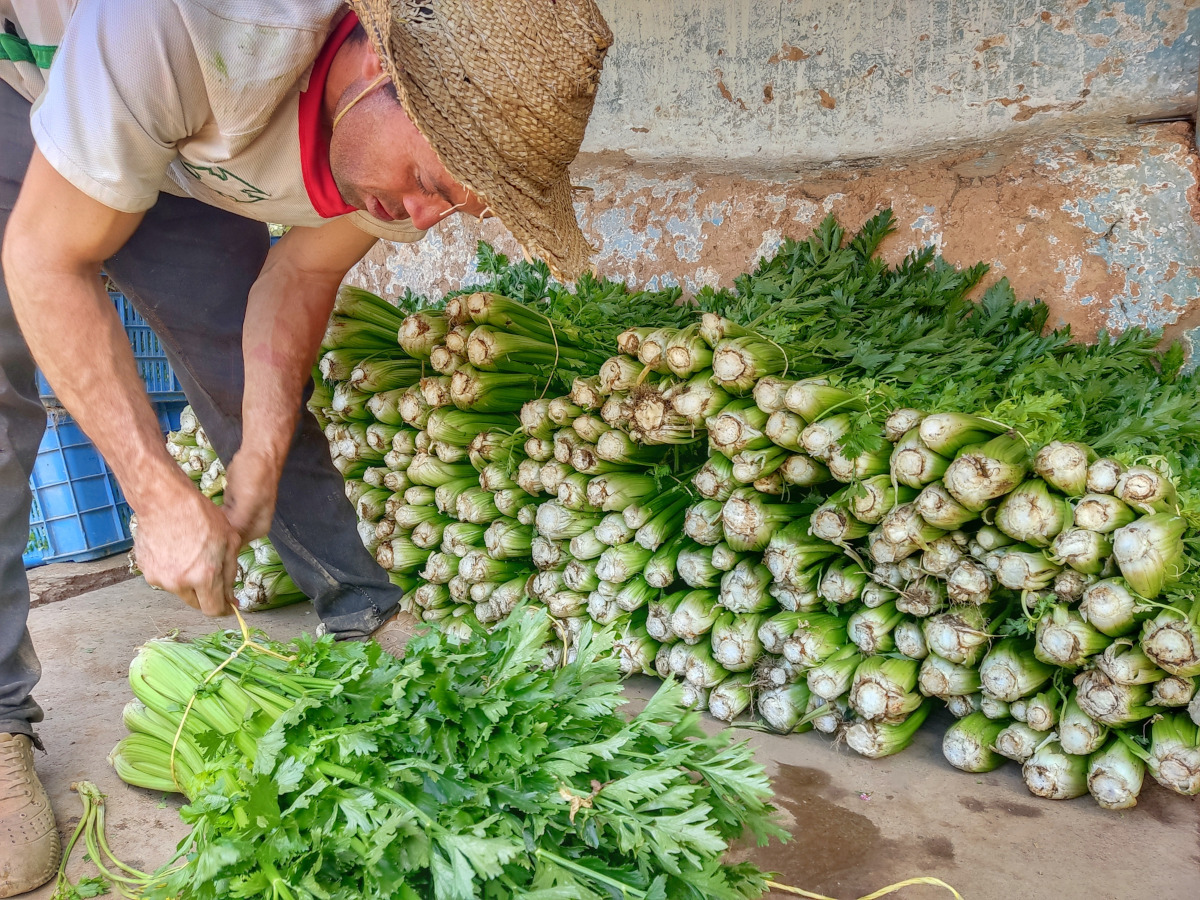Lisbon, Portugal, February 20, 2024 (venezuelanalysis.com) – The United Nations Special Rapporteur on the right to food Michael Fakhri demanded an end to unilateral coercive measures against Venezuela.
Fakhri published a preliminary statement at the end of his two-week visit to the Caribbean nation. The report heavily focused on economic sanctions, described as “negatively impact[ing] food production and distribution.”
The UN expert pointed at blocked or overpriced imports and fuel shortages as direct consequences of sanctions and added that they have “disproportionately affected” the most vulnerable groups.
“Unilateral coercive measures are cruel and vicious and hinder realization of the right to food. I call upon all relevant States to immediately review and lift sectorial sanctions imposed on Venezuela including secondary sanctions against third-parties,” he wrote.
From February 1 to 14, Fakhri, whom the Nicolás Maduro government invited to conduct a country visit, met with state officials, NGOs and grassroots organizations in Anzoátegui, Miranda, Sucre and Zulia states as well as the capital Caracas.
The preliminary report identified widespread issues for the Venezuelan people to consume good quality food, either because of low incomes or a lack of access.
“As a result, families are forced to use negative coping mechanisms such as reducing
portion sizes, skipping meals, and buying less nutritious food items,” the rapporteur stated. He went on to identify school meals as essential to ensure proper development and attendance, calling for greater reliance on “community-led initiatives” and locally sourced food.
Fakhri, who is a professor at the University of Oregon, found indigenous communities to be especially vulnerable when it comes to food security and expressed concern over general conditions in detention centers.
The UN rapporteur urged Venezuelan authorities to “enhance transparency” and publish more data on food policies. He praised the Venezuelan Constitution and other instruments such as the 2015 Seed Law as defending the right to food and food sovereignty but called for greater implementation and enforceability.
While acknowledging that the private sector can play a role in boosting food production and distribution, Fakhri echoed a recurring concern from popular movements over the generation of agribusiness monopolies. He likewise recommended that the government expand the existing support for small-scale producers.
“I strongly encourage the Government to develop an urgent plan of action on the right to food in Venezuela, based on existing laws, through a socially inclusive process and existing participation mechanisms,” Fakhri concluded. He will present an in-depth report to the UN Human Rights Council.


Grassroots organizer Ricardo Miranda concurred with the UN rapporteur’s assessment that US-led sanctions remain the key obstacle to production in the Venezuelan countryside. He singled out transportation, both for rural workers themselves as well as moving crops, and access to inputs as major “bottlenecks.”
“Another important consequence of the blockade has been the dollarization of fuel and input prices,” the activist from Pueblo a Pueblo told Venezuelanalysis. “This raises production costs and creates imbalances, reducing purchasing power for consumer families and even lost crops.”
Miranda praised Fakhri’s willingness to visit communities and witness their efforts to continue producing amidst sanctions-driven economic struggles. He emphasized Pueblo a Pueblo’s work as a route to ensure food security and sovereignty in the Caribbean country.
“It is indispensable that campesinos organize in networks, communes, cooperatives, etc. in order to build a sustainable food production model,” he argued. “This is production for life, not for capital.”
The organizer went on to highlight Pueblo a Pueblo’s present efforts to supply healthy produce and protein to more than 100,000 children in 305 schools in eight Venezuelan states. The production is secured by 359 campesino families in around 450 hectares of land.
“If the UN and its agencies want to mitigate the consequences of sanctions, we offer the Pueblo a Pueblo methodology (of grassroots organization and production) which provides nutritious food that is essential for children’s development and goes beyond the existing initiatives run by the World Food Program,” Miranda concluded.
